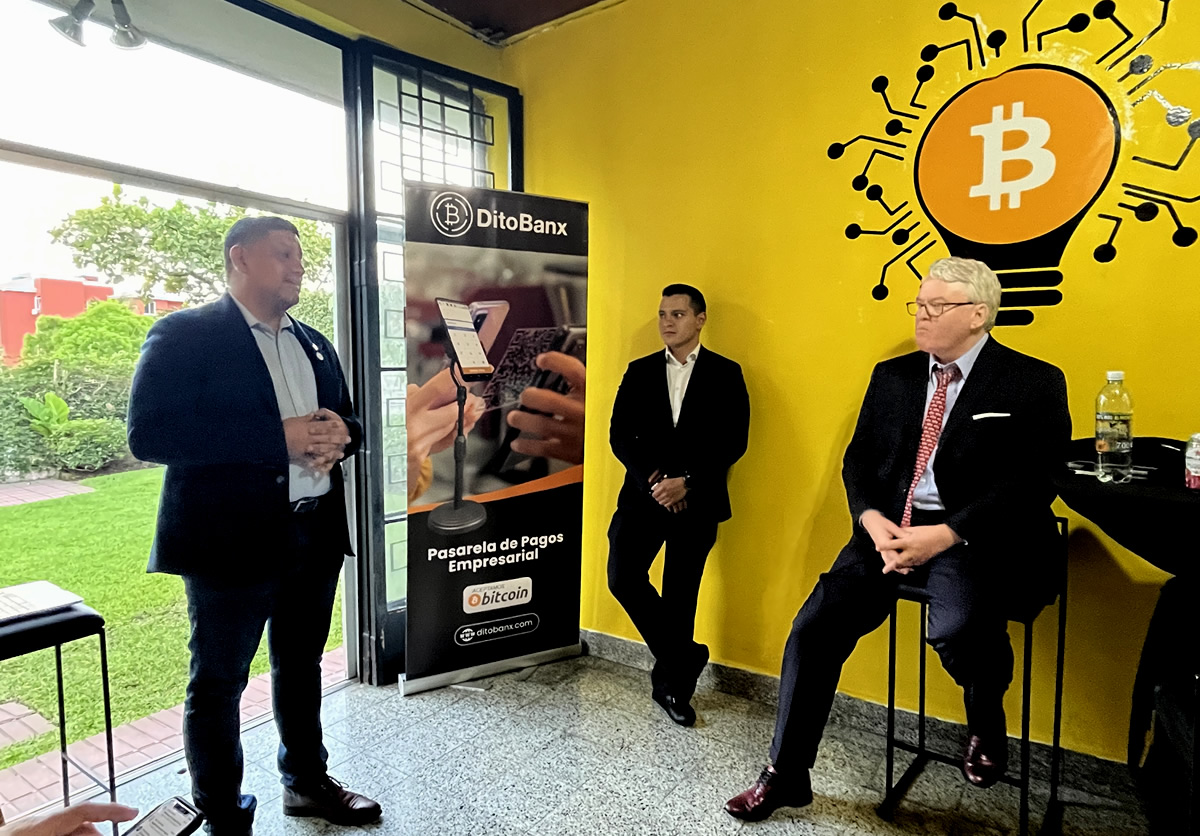
By Herb Frazier | In the mountain town of Ataco in El Salvador, a female street vendor sold flatbread to S.C. State Treasurer Curtis Loftis Jr., but she did not accept U.S. dollars or another foreign currency. Instead, she wanted bitcoin.
Bitcoin was also the accepted legal tender at an upscale Salvadoran restaurant where Loftis and other South Carolinians dined in mid-September during a fact-finding visit to see how bitcoin, a digital currency, is functioning as the country’s national currency.
On Oct. 5-7, Loftis and others will discuss El Salvador’s economy and other emerging digital technology during the S.C. Blockchain Conference at the Indigo Inn in Mount Pleasant. Hester M. Peirce, a member of the U.S. Securities and Exchange Commission, is also scheduled to attend the conference.
The conference, sponsored by the S.C. Emerging Technology Association (SCETA) based in Charleston, recently gained support from state lawmakers who authorized Loftis to spend $500,000 to study digital currency literacy. Information about digital currencies is expected to be added to the treasurer’s office website this month.
In an interview with Statehouse Report, Loftis said, “My job is not to be a proponent or an opponent of bitcoin or digital assets. My job is to look at them all and try to see how the state wants” to use the technology and then develop a financial literacy course for it.
Loftis said he found it interesting that many Salvadorans who don’t have bank accounts use bitcoin as part of their small businesses one year after the Central American country adopted bitcoin.
“After 100 years of modern banking, between 15% to 20% of the country uses bitcoin and 80% of the people do not have bank accounts,” the treasurer said. Bitcoin makes it easier and cheaper for Savadorans abroad to send money home to their relatives, he added.
Dennis Fassuliotis, SCETA’s president, said what he and others witnessed in El Salvador recently was useful in the organization’s effort to encourage more support and understanding for digital assets and emerging technologies in the Palmetto State.
“We heard multiple stories about how street vendors have embraced this technology and significantly grown their businesses as a result,” he said. “While there are a number of variables to consider, it’s exciting to ponder the prospects of how South Carolinians, especially those in our rural communities, might also benefit from using bitcoin.”
Bitcoin’s value changes daily. El Salvador’s decision to use it as legal tender along with the U.S. dollar, which replaced the country’s colòn currency in 2001, is not getting rave reviews internationally. The Conversation, an online forum on global affairs, calls the decision a failure.
Loftis was among five South Carolinians who met with the country’s finance minister and other government officials.
“They knew it wasn’t going to be easy, and they knew there were going to be missteps,” he said. “I feel confident they are going to do a fine job with it. Whether that is what (South Carolina) wants to do I don’t know. What I’ve learned in El Salvador is that what the [critics] have been writing from New York, London and Paris did not match what I saw in El Salvador.”
Loftis traveled to El Salvador with a group of business leaders, rural health officials and individuals interested in the expansion of cryptocurrency and blockchain technologies. They saw a 10-week financial literacy program that included lessons on how to use bitcoin for daily transactions. Loftis stressed he didn’t use state or SCETA funds to pay for his trip to El Salvador.
During the October blockchain conference, presenters will discuss bitcoin as well as business and governmental uses of blockchain technology. Blockchain technology is a computer-based, ongoing permanent ledger that records transactions and ensures each one is authentic. A digital asset is anything that has a value that can be stored on the blockchain as unique digital data such as a book, music, videos and photographs.
SCETA is the first nonprofit organization in the state to promote blockchain technology, digital assets and cryptocurrencies. The blockchain technology uses bitcoin or another digital currency for transactions, including paying local taxes or making international transactions to save money and time.
Blockchain technology is said to have near unlimited uses. It can store and verify a transaction and prevent the counterfeiting of items such as pictures, car parts and clothing by placing a chip or digital token in the product.
Everyday uses for the blockchain could include storing and transferring drivers’ license information between two state governments to eliminate the need to apply for a new license in another state. The blockchain also can instantaneously move money to an individual or company without using a bank, avoiding fees and transaction limits.
Herb Frazier is special projects editor at the Charleston City Paper. Have a comment? Send to: feedback@statehousereport.com.















 We Can Do Better, South Carolina!
We Can Do Better, South Carolina!
Interesting article. Interesting peek into the future. But, if he did not pay for the trip with SETA or State funds, and yet it sounds as if he was on State fact-finding mission, State business, how did he pay for the trip?